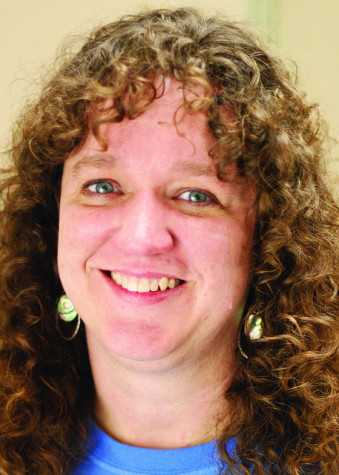Hygiene machines falter in some school restrooms
April 17, 2013


Kelli Crawford wanted to buy a tampon, but all she found was an empty dispenser.
Crawford said that not only did she find the unstocked dispensers frustrating, but she thought the unavailability of these products as unhygienic. She felt unwelcome.
Menstruation is a natural, biological function of a woman’s reproductive cycle. The uterus produces a lining to nurture a fertilized egg, but if no fertilized egg is present, then the lining is shed. This shedding is called menstruation or a period. Considering that a little over half of the students enrolled at Eastern Washington University are women, menstruation is a big deal to more than just a few people.
The Easterner found twelve buildings on campus with absolutely no working feminine hygiene machines. The machines were either absent, empty, broken or ate quarters without producing a product. Some buildings had broken or empty machines in some bathrooms and machines that worked in other bathrooms. When researching, if we found a working machine in a building, we moved on to the next building without checking the other dispensers in other bathrooms. We were looking for one working machine per building.
Karen Wichman, director of facilities services, said in an email that the custodial staff was responsible for stocking and maintaining the machines. She stated that customers who discover machines that are not working properly could report those machines to the work order desk at 509-359-2245.
The broken machines are to be repaired or replaced with ADA-compliant devices, according to Wichman. She said that custodial would be checking all the feminine hygiene machines on campus. ADA-compliant devices cost $450 apiece.
Wichman stated that she thought that women do not call in the broken or empty machines because they are not using them. As a result, the machines are not stocked frequently.
Crawford said that she was unaware that machines could be called in to maintenance. Since she does so much running between classes, she said that she does not have much time to call in broken dispensers. She added that while she was open and comfortable with talking about menstruation needs, some women might find it awkward to talk to a stranger, especially a male, about the feminine hygiene dispensers, even anonymously.
Dr. Elizabeth Kissling, EWU professor and international expert on menstruation, said that it is socially unacceptable to talk about menstruating. In her book, “Capitalizing on the Curse,” she states that public communication is limited to complaints about menstrual symptoms or the mocking of women who are menstruating. She argues that advertising media promotes products to handle menstruation as a problem by either selling hygienic supplies or medication to treat menstruation or its effects.
Darrel Greene, a senior and biology major, said that he could relate even as a guy and thought that the school should stock the supplies to show care for the students, especially since they charge for the supplies “It’s an unpleasant week of someone’s life — the least the school can do is take one less factor, fear of not being able to keep the flow [in] control, out of the stressful event.” He said that women would feel safer knowing that supplies were available in an emergency.
Kissling said that not every woman menstruates consistently every 28 days. She said that many women do not always have something in their pockets when their periods start.
Greene also said that it was a good idea to carry a spare pad just in case. “It’s also a good thing to do in case you encounter someone who needs one.”
Wichman agreed. “I think most women carry what they need with them. We wonder sometimes if the amount of use is worth the cost of maintaining the machines and carrying the product. They are prone to vandalism, which may be why some are not working,” she said.
After several different occasions of finding either an empty dispenser or no dispenser at all, Crawford said she has learned to always carry feminine hygiene supplies so she does not have to ask a friend or run to the store between classes.
Wichman stated that she thought that women do not call in the broken or empty machines because they are not using them. As a result, the machines are not stocked frequently.
Crawford said that she was unaware that machines could be called in to maintenance. Since she does so much running between classes, she said that she does not have much time to call in broken dispensers.
She added that while she was open and comfortable with talking about menstruation needs, some women might find it awkward to talk to a stranger, especially a male, about the feminine hygiene dispensers, even anonymously.
After several different occasions of finding either an empty dispenser or no dispenser at all, Crawford said she has learned to always carry feminine hygiene supplies so she does not have to ask a friend or run to the store between classes.

Take our feminine hygiene poll
To check out the video CLICK HERE









Nicole Ann Evans • Apr 25, 2013 at 12:44 pm
Great article- having many classes at Senior Hall and that special time of the month occurring – I can understand the frustration of many. Those machines have not worked at all during the past 2 years. I hope that this raises awareness that women’s basic/biological needs are NOT a luxury item for restrooms but a realistic and hygienic need.